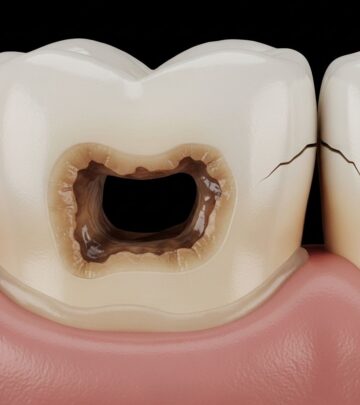Do Magnetic Rings Work for Weight Loss? Science and Reality Explained
Learn if magnetic rings can help you lose weight, what science says, and why experts urge caution against miraculous claims.

Do Magnetic Rings Really Help You Lose Weight?
In the ever-growing health and wellness industry, magnetic rings are one of the latest trends promising effortless weight loss. Marketers claim that simply wearing a magnetic ring—or similar magnetic jewelry—can “melt fat,” “boost metabolism,” or “suppress appetite,” appealing to those seeking a quick fix for weight management. But what does the science say?
What Are Magnetic Rings, and How Are They Supposed to Cause Weight Loss?
Magnetic rings are rings embedded with magnets, often promoted as a form of magnetic therapy. The theory behind their use for weight loss is that the magnetic field can influence the body’s physiological processes—such as improving circulation, balancing hormones, or stimulating metabolism—leading to fat reduction. Some brands even claim their rings can “remove blockages” in the body, accelerating weight loss without diet or exercise.
What Do the Manufacturers and Marketers Claim?
- Wearing a magnetic ring can “melt” body fat within weeks.
- These rings boost your metabolism, making your body burn calories faster.
- They may suppress appetite, reducing cravings and food intake.
- Some claim improved circulation and hormonal balance, supporting detoxification and weight loss.
- Marketers often use before-and-after photos and testimonials as “proof” of effectiveness.
What Does Science Say About Magnetic Rings and Weight Loss?
The Scientific Consensus
There is no credible scientific evidence that magnetic rings or jewelry cause weight loss. Multiple reviews and expert statements—including from the U.S. Federal Trade Commission (FTC)—state that there is no reliable evidence supporting the idea that wearing magnetic jewelry aids in weight loss.
Peer-Reviewed Studies
While some areas of magnetic therapy are under research (for example, magnetic auricular acupressure or transcranial stimulation), these approaches are not the same as wearing a simple magnetic ring. The modest results seen in controlled studies—such as the application of magnetic seeds to specific ear points—yield minimal weight loss (about 1 kg over 8 weeks) and are not generalizable to magnetic rings worn on fingers.
What About Magnetic Compression Devices?
Some research explores magnetic compression devices used in specific medical contexts, such as post-bariatric surgery recovery, but these are not everyday magnetic rings and their weight loss effects are likely due to improved compliance with dietary changes, not the magnetic field itself.
Moissanite and Other Magnetic Jewelry
Some believe that combining gemstones with magnets (e.g., moissanite rings) enhances weight loss. However, evidence for this is purely anecdotal and there is no scientific backing. Any reported benefits are likely due to a placebo effect or increased motivation—not the jewelry itself.
Why Are These Claims So Popular?
Weight loss is a multi-billion-dollar industry, and products promising effortless results—especially those endorsed by celebrities or social media influencers—can quickly gain traction, regardless of scientific validity. Many consumers are eager for a simple, low-effort solution, which marketers are happy to provide. However, the FTC has warned against these claims, noting that experts and studies consistently debunk the idea that magnetic jewelry can induce weight loss.
Are There Any Health Risks Associated With Magnetic Rings?
For most people, magnetic rings are considered harmless. However, there are some important exceptions and safety concerns:
- Medical device interference: People with implanted medical devices (e.g., pacemakers, defibrillators, insulin pumps) should avoid magnetic jewelry, as the magnets could interfere with device function.
- Blood clotting disorders: There is limited information, but some sources advise caution.
- Pregnancy and children: Magnetic jewelry is not recommended for pregnant individuals or those under 18.
- Allergies or skin irritation: As with any jewelry, some people may experience skin irritation or allergies to metals.
If you have any health concerns, consult your healthcare provider before using magnetic rings or jewelry.
What Other Magnetic Weight Loss Products Are Marketed?
Magnetic rings are just one part of a broader trend. Other products include:
- Magnetic bracelets and necklaces: Claim to boost metabolism, but lack scientific backing.
- Magnetic ear patches: Marketed to suppress appetite, but the evidence is limited to specific acupressure points, not general magnetic patches.
- Magnetic “slimming” garments: Sometimes sold with weight loss claims; these also lack meaningful evidence.
Frequently Asked Questions (FAQs)
Q: Is there any scientific evidence that magnetic rings help you lose weight?
A: No, there is no scientific evidence that wearing magnetic rings causes significant weight loss. The FTC and other expert bodies have warned consumers that no device worn on the skin—including magnetic rings—can lead to substantial fat reduction.
Q: Are magnetic rings safe for everyone to wear?
A: For most healthy adults, magnetic rings are generally safe. However, people with certain medical conditions (such as those with implanted devices, blood clotting disorders, or pregnant individuals) should not use them without medical advice.
Q: Why do some people claim they lost weight after wearing a magnetic ring?
A: Any reported weight loss is likely due to the placebo effect, increased motivation, or lifestyle changes—not the ring itself. There is no known physiological mechanism by which a magnetic ring can cause fat loss.
Q: What should I do if I want to lose weight?
A: Focus on evidence-based approaches: a balanced diet, regular physical activity, behavioral changes, and professional support. Sustainable weight loss comes from healthy lifestyle changes, not gadgets or quick fixes.
Q: What do regulatory agencies say about magnetic rings for weight loss?
A: The FDA and FTC have issued warnings against companies making unsubstantiated claims about magnetic weight loss devices. These products are not approved for weight loss, and marketing claims often violate federal regulations.
What Are the Alternatives to Magnetic Rings for Weight Loss?
If you are seeking to lose weight, there are proven, science-backed strategies that are validated by research and recommended by healthcare professionals:
- Healthy eating: Focus on whole foods, fruits, vegetables, lean proteins, and whole grains.
- Regular physical activity: Aim for at least 150 minutes of moderate aerobic activity each week.
- Behavioral therapy and support: Apps, counseling, and community support can help with sustainable lifestyle changes.
- Medical interventions: For some individuals, medications or bariatric surgery may be appropriate—always under professional guidance.
Expert Tips for Avoiding Weight Loss Scams
Here are some expert-backed tips to help you avoid deceptive weight loss products and scams:
- Beware of “magic bullet” claims: If it sounds too good to be true, it probably is.
- Check for scientific backing: Look for studies published in reputable, peer-reviewed journals.
- Consult your healthcare provider: Before starting any new weight loss product or device, talk to your doctor.
- Be skeptical of testimonials: Personal stories are not scientific evidence.
- Watch for FDA/FTC actions: Regulatory warnings are a red flag for unproven products.
Regulatory Actions Against Magnetic Weight Loss Products
Federal agencies have intensified enforcement against companies making unproven claims about magnetic weight loss devices. The FDA and FTC have both warned consumers and taken action against companies promoting these products without scientific evidence.
The Placebo Effect and Psychological Benefits
Some people may feel better or more motivated while wearing a special ring, which could indirectly support healthier habits. However, this is a psychological, not a physical, effect. The belief that something works—even when it does not—can be powerful, but it is not a substitute for real lifestyle change.
Conclusion
Despite their popularity and persuasive marketing, magnetic rings do not cause weight loss. Scientific studies, regulatory agencies, and health experts all agree: sustainable weight loss requires healthy eating, regular exercise, and behavioral changes—not magnets or jewelry. Consumers should be skeptical of products promising easy solutions, and always seek evidence-based approaches for lasting results.
Table: Magnetic Rings vs. Evidence-Based Weight Loss Methods
| Method | Evidence for Weight Loss | Safety | FDA/FTC Status |
|---|---|---|---|
| Magnetic Rings | No credible scientific evidence | Generally safe, but not for everyone | Not approved, regulatory warnings |
| Healthy Diet & Exercise | Extensive scientific support | Safe for most people | Recommended |
| Behavioral Therapy | Proven effective | Safe | Recommended |
| Medical Interventions | Proven for some populations | Under medical supervision | Approved |
In summary, magnetic rings for weight loss are not supported by science. To achieve and maintain a healthy weight, focus on diet, exercise, and sustainable lifestyle changes, and always consult your healthcare provider for trustworthy advice.
Read full bio of medha deb












